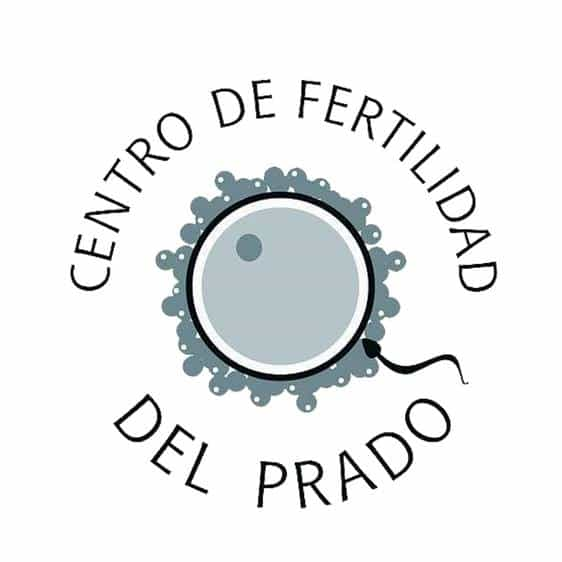Why Choose IVF With ICSI in Mexico
.jpg)
Welcome to a comprehensive guide on Intracytoplasmic Sperm Injection (ICSI) when combined with In Vitro Fertilization (IVF) in Mexico. For many couples facing fertility challenges, understanding the different assisted reproductive technologies available is a crucial first step toward building a family.
IVF is a widely recognized and effective treatment, but sometimes, an additional technique called ICSI becomes necessary to boost the chances of successful fertilization. This is especially true for specific diagnostic situations where the sperm's ability to fertilize an egg naturally is compromised. Mexico has emerged as a popular and accessible destination for fertility treatments, offering high-quality care at often more affordable prices than in other countries.
This detailed overview aims to shed light on when ICSI is typically recommended during an IVF cycle in Mexico, addressing common concerns and providing clear answers. Whether you are just beginning your fertility journey or exploring advanced options after previous attempts, knowing when and why ICSI is suggested can empower you to make informed decisions.
We will explore the specific scenarios that warrant ICSI, its benefits, potential considerations, and what makes Mexico a compelling choice for these advanced fertility treatments. Let's delve into the specifics to help you navigate your path to parenthood with confidence.
When is ICSI specifically recommended during IVF treatment?
ICSI is a specialized procedure often added to an IVF cycle to overcome significant fertilization challenges. The primary indication for ICSI is severe male factor infertility, which includes conditions like very low sperm count (oligozoospermia), poor sperm motility (asthenozoospermia), or abnormal sperm morphology (teratozoospermia). In these cases, traditional IVF might not be sufficient for successful fertilization because the sperm are unable to penetrate the egg on their own.
Beyond male factor issues, ICSI is also recommended if a couple has experienced poor or no fertilization in previous standard IVF cycles. This suggests an underlying issue with sperm-egg interaction that ICSI can directly address by manually inserting the sperm.
Furthermore, if sperm has been retrieved surgically from the testicles or epididymis due to blockages or non-obstructive azoospermia, ICSI is almost always used because these sperm are often immature or fewer in number. Utilizing frozen sperm, particularly if it's of limited quantity or quality, also frequently warrants ICSI to maximize fertilization success.
What is ICSI and how does it differ from traditional IVF?
ICSI, or Intracytoplasmic Sperm Injection, is an advanced technique used in conjunction with in vitro fertilization (IVF). In a standard IVF procedure, eggs retrieved from the woman and a prepared sample of sperm are placed together in a petri dish. The sperm are then expected to fertilize the eggs naturally, just as they would in the fallopian tubes. This method relies on the sperm's ability to navigate and penetrate the egg's outer layers on their own.
The key difference with ICSI is the intervention of an embryologist. Instead of allowing natural selection, a highly skilled embryologist selects a single, healthy-looking sperm and, using a tiny needle, injects it directly into the cytoplasm of each mature egg.
This bypasses any potential issues with sperm motility, morphology, or its ability to penetrate the egg's outer layer. Essentially, ICSI forces fertilization to occur, making it a powerful tool for specific infertility diagnoses, particularly severe male factor infertility, when traditional IVF might fail.
Who is a good candidate for ICSI?
Identifying suitable candidates for ICSI is crucial for maximizing the success of an IVF cycle. The most common group of candidates are those experiencing severe male factor infertility. This encompasses conditions like very low sperm count (oligozoospermia), poor sperm movement (asthenozoospermia), or an abnormally high percentage of malformed sperm (teratozoospermia).
For these men, even if there are some viable sperm, their natural ability to reach and fertilize an egg might be significantly impaired, making ICSI an essential intervention.
Other candidates include couples who have undergone previous IVF cycles where fertilization rates were very low or non-existent, despite seemingly healthy sperm and eggs. This "unexplained fertilization failure" suggests a problem at the sperm-egg interaction level that ICSI can effectively bypass.
Additionally, men who have had sperm surgically extracted due to conditions like obstructive azoospermia (a blockage preventing sperm release) or non-obstructive azoospermia (low or no sperm production) are almost always candidates for ICSI, as the retrieved sperm may be limited in quantity or maturity.
Does ICSI increase the success rate of IVF?
When ICSI is appropriately indicated, it absolutely increases the success rate of an IVF cycle, primarily by ensuring fertilization occurs. In situations where male factor infertility is a barrier, or if previous standard IVF attempts resulted in poor fertilization, ICSI dramatically improves the chances of sperm successfully penetrating the egg. By manually injecting a single sperm into each egg, ICSI ensures that the crucial first step of fertilization is achieved, overcoming natural hurdles that might otherwise prevent embryo creation.
However, it's important to understand that while ICSI boosts fertilization rates, it doesn't necessarily improve embryo quality or implantation rates beyond what would be expected once fertilization is successful. Its main role is to get past the initial hurdle of sperm-egg interaction. Therefore, for couples without male factor infertility or previous fertilization issues, adding ICSI to a standard IVF cycle may not offer additional benefits in terms of live birth rates and might even increase costs unnecessarily. The decision to use ICSI is highly individualized and based on a thorough assessment by fertility specialists.
Are there any risks associated with ICSI?
Like any medical procedure, ICSI carries some potential risks, though they are generally considered low and clinics take precautions to minimize them. One primary concern is the possibility of damaging the egg during the microinjection process. While embryologists are highly skilled, there's a small chance that the egg may not survive the injection, resulting in no fertilization for that particular egg. However, this risk is minimal in experienced hands.
Another area of discussion revolves around potential genetic risks. Some studies have suggested a very slight increase in the incidence of certain birth defects, such as chromosomal abnormalities or imprinting disorders, among children conceived via ICSI compared to those conceived naturally. It's important to note that many of the underlying causes for needing ICSI (like severe male factor infertility) can themselves be linked to genetic issues, making it challenging to isolate the direct impact of the procedure. Fertility clinics typically offer genetic counseling to address these concerns. Overall, the vast majority of children born from ICSI are healthy, and the benefits often outweigh the minimal risks for appropriate candidates.
What factors might lead a clinic to recommend ICSI even without severe male infertility?
While severe male factor infertility is the most common reason for ICSI, there are other scenarios where a fertility clinic in Mexico, or anywhere else, might recommend it. One such instance is when a very small number of eggs are retrieved during the IVF cycle. With fewer eggs available, maximizing the chance of fertilization for each egg becomes paramount, and ICSI offers a more controlled environment for this to happen.
Another significant factor is the use of preimplantation genetic testing (PGT), such as PGT-A (aneuploidy screening) or PGT-M (monogenic disorder testing). To perform PGT, a biopsy of the embryo is taken, and ICSI is often recommended in these cases to prevent contamination of the embryo sample with extraneous sperm cells.
If multiple sperm are around the egg during natural fertilization, they could stick to the embryo and interfere with the genetic testing results. ICSI ensures that only the intended sperm's genetic material is present. Finally, a history of unexplained poor fertilization in previous standard IVF cycles, even if semen analysis appears normal, can lead to an ICSI recommendation to overcome potential unknown fertilization barriers.
Why consider IVF with ICSI in Mexico?
Mexico has become an increasingly popular destination for fertility treatments, including IVF with ICSI, attracting couples from around the globe. The primary driver is often the cost-effectiveness. The price of an IVF cycle with ICSI in Mexico can be considerably lower than in countries like the United States or Canada, making advanced fertility care accessible to more individuals who might otherwise be unable to afford it. This cost saving does not typically come at the expense of quality.
Mexican fertility clinics are known for their modern facilities, equipped with state-of-the-art technology and staffed by highly trained, often internationally experienced, fertility specialists and embryologists. Many clinics adhere to international standards and regulations, ensuring a high level of patient care and safety. Furthermore, the cultural proximity and ease of travel for North Americans, combined with a supportive and discreet environment, make Mexico an attractive option for medical tourism in reproductive health.
What should I look for in an IVF clinic in Mexico for ICSI?
Choosing the right IVF clinic is a critical step, especially when considering ICSI. When evaluating clinics in Mexico, start by verifying their accreditations and certifications. Look for clinics that are accredited by international bodies or that follow strict quality control protocols, as this indicates a commitment to high standards of care and safety. Research the experience and qualifications of their embryology team, as their skill is paramount for successful ICSI.
Transparency in pricing and a clear breakdown of costs for IVF and ICSI are also essential. Ensure there are no hidden fees and that the package includes all necessary procedures. A comprehensive range of services, including genetic testing, egg/sperm freezing, and donor programs, can indicate a well-established and versatile clinic. Finally, seek out patient testimonials and success rates (while understanding that individual outcomes vary) to gauge overall patient satisfaction and the clinic's reputation. Don't hesitate to ask detailed questions during your initial consultations.
How much does IVF with ICSI typically cost in Mexico compared to other countries?
One of the most compelling reasons couples choose Mexico for IVF with ICSI is the substantial cost savings. The typical cost for a single cycle of IVF with ICSI in Mexico can range from approximately $6,000 to $10,000 USD. This price often includes the core IVF procedures, the ICSI add-on, medications, and sometimes even initial consultations and monitoring.
In stark contrast, the same treatment in countries like the United States can cost anywhere from $15,000 to $30,000 USD or more per cycle, often excluding medications which can add thousands of dollars. Canadian costs, while potentially lower than the U.S., still typically exceed those in Mexico. This significant difference allows many couples to afford multiple cycles if needed or to allocate funds to other aspects of their family-building journey. While exact prices vary by clinic and specific patient needs, Mexico consistently offers a more budget-friendly option without compromising on medical expertise or facility quality.
Is it safe to travel to Mexico for fertility treatments like IVF and ICSI?
For many individuals considering medical tourism, safety is a primary concern. When it comes to fertility treatments like IVF and ICSI in Mexico, it is generally considered safe, particularly if patients choose reputable clinics located in established medical tourism destinations. Cities like Cancun, Tijuana, Mexico City, and Guadalajara host numerous internationally recognized fertility centers that prioritize patient safety, quality care, and follow strict hygiene protocols.
As with any international travel, it's advisable to take standard precautions: research your chosen clinic thoroughly, understand their patient safety records, and ensure they communicate clearly in your language. It’s also wise to stay in recommended areas, arrange for reliable transportation, and be aware of your surroundings. Most clinics offer assistance with travel logistics, accommodation, and local guidance, further enhancing patient safety and comfort during their treatment journey. By focusing on well-vetted clinics and exercising common sense travel practices, the experience can be both safe and successful.
Exploring your options for IVF with ICSI in Mexico can be a significant step toward achieving your family goals. For assistance in finding the best clinics and navigating your medical tourism journey, explore PlacidWay's comprehensive solutions for healthcare services worldwide.




.png)

.png)
-Package-at-Advanced-Fertility-Center-Cancun,-Cancun,-Mexico.png)

.png)
.png)
.png)
.png)






Share this listing